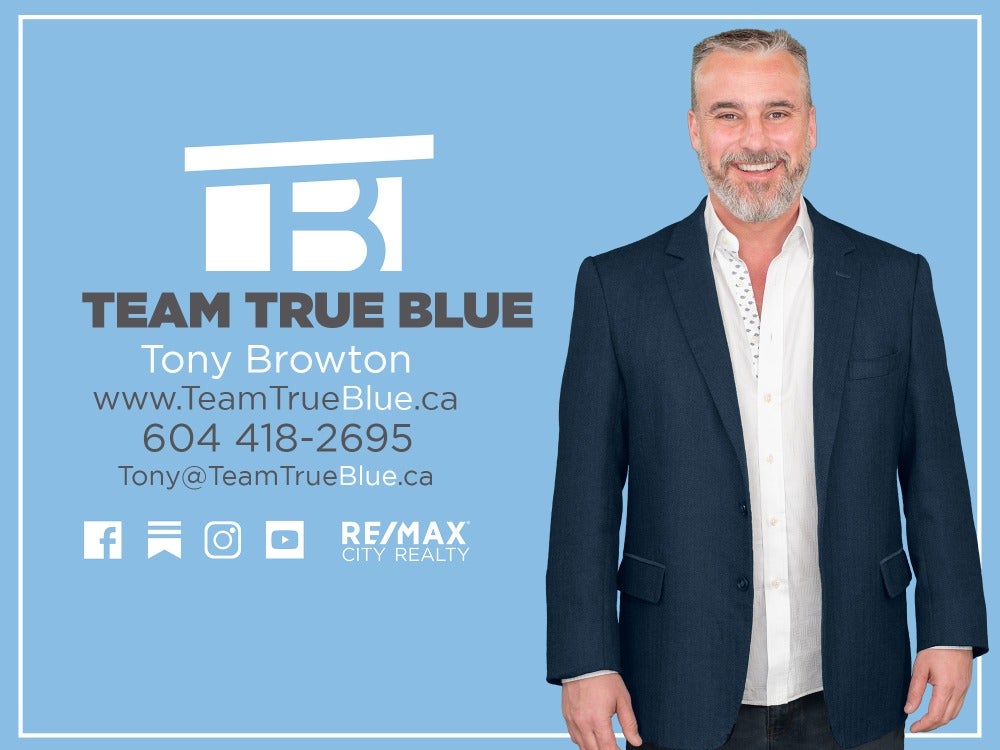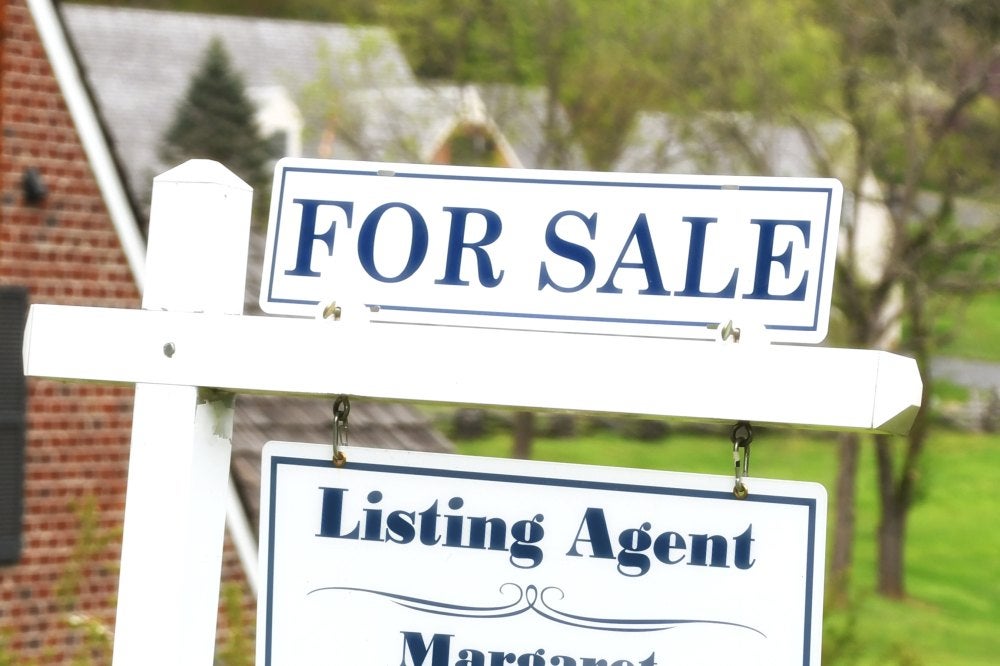This post was written using a transcript from Tony's July 2023 podcast. It’s been edited for clarity.
Where was the June rally?
PAUL: In the last episode, we'd said that we were anticipating a rally in prices this summer on the Sunshine Coast. That's not really happening right now. What's going on?
TONY: I saw that clip come up on the Instagram feed and was like, "Oh, got it wrong again." Normally what we see is when the North Shore pops off, there's a little bit of a lag and then we start to see buyers come on over this way. Another precursor to us getting busy has always been Halfmoon Bay. So about a month ago, Halfmoon Bay was popping off. Normally, that means that right after that, we start to see a lot more activity on the Coast and it just hasn't happened so far this year. I've been trying to think why. I think maybe prices here are just inflated to the point where it's not making sense for people to make that move to the Sunshine Coast. It's a great outside, outdoor lifestyle and it's really good for the people that fit into the community, but there are quite a few things that you give up.
TONY: You're going to move to a small town for that kind of lifestyle, but it needs to make sense, if it's a very close price point to what you can get somewhere else where there isn't a ferry involved. And that goes on to the second thing, the press that we've been getting recently. Obviously, we're well overdue like when we were talking to the mayors and that kind of stuff to have new ferries. That's been put off and put to the back burner and I think we're four years past due of having a ferry or a new ferry come into the mix for the Sunshine Coast. Realistically, we're looking at another six or seven years before that happens. So the ferry situation is bad. It's only going to get worse and I think that really does deter a lot of people.
TONY: The other big thing, the one that jumped out at me a lot was the water situation in Sechelt. The common misconception is all of the Sunshine Coast is hurting for water, which isn't accurate at all. There are areas in the SCRD which are fine. Langdale's fine. Gibsons is fine. Up in Pender, that area is fine. There is an area in Sechelt where there has been, you might want to say, mismanagement or not the foresight to plan ahead for increases in density and population growth and that was reported in a way that, to me, wasn't accurate as to what actually is happening on the Coast and that puts a lot of people off .
TONY: People ask, "Oh, what's happening with the water situation there?" So people now, you can't get anywhere. The ferries are screwed. There's a water shortage, which we don't know how to do. Obviously, the most talked about thing is the sinkholes. We're not getting a lot of good press on the Sunshine Coast. If the prices aren't where they need to be to bridge that fear gap or whatever it is or that gap of the unknown, what your lifestyle is going to be like or the lack of amenities, I think that it's really slowing down that migration, I guess, to the Sunshine Coast. That would be my excuse for me being so wrong.
interest rates hurting buyers
Photo by iLixe48 via Envato Elements
PAUL: Well, I think the other one that is a killer is interest rates. I know people all realize that interest rates have gone up and that generally, it makes it more expensive to buy a house. But we ran numbers and I don't think people really understand how much their buying power has been cut with these interest rates over the last 18 months. We had looked at about 18 months ago, you could have got a mortgage for about two and a half percent, and now you're in the high fives, low sixes in there. If you were going to buy a house a year and a half ago for 1.5 million, put 20% down and you had a 2.5% interest rate, your payment would've been about $5,400 a month, which is a lot of money, but that's what houses are going for here on the Sunshine Coast. Today, that same $5,400 would only service a purchase price of $1,070,000. So it's like a 30% drop.
PAUL: So it's not that buyers don't want to buy, they want to buy, but they just can't pay $1.5 million for a house right now.
TONY: Yeah, and I don't think that that's necessarily had its full impact yet because there are a lot of people that have secondary homes on the Sunshine Coast and when they go to refinance, so if you go to refinance your primary residence, as far as I understand, the bank can't not give you the mortgage. But if it's a secondary home, so if it's revenue property that you have on the Sunshine Coast, all of a sudden, you're outside of the Airbnb area and you bought the home at an interest rate of 1.9%, so now you've got to qualify to refinance it at 8% or whatever it's going to be, those people are going to have to sell. So I think that we're going to start to see that coming up where people are coming into that renewal period and they are going to have to sell and that's going to put increased downward pressure on the Sunshine Coast.
PAUL: Well, and even if the bank doesn't put that pressure on you, the reality is that your payment's going to go up hundreds and hundreds of dollars a month, so that even if the bank says, "Oh, yeah, you've never missed a payment. We'll renew the mortgage at the new rate. Let's just carry on with life," you still have to make the payment.
PAUL: I think there'll be a lot of people that look at that and say, "Oh, I can't. It's too much. I can't swing it." Especially if you've got a home in the city and then you've got a summertime home here. Both properties are going to have higher mortgage payments. So even if the bank isn't stepping in and saying, "We're not going to renew this," people might just police it themselves and say, "We're going to get into trouble with this if we have to pay this rate for the next year, two years, five years, whatever it is." So I think you're right. I think when people have that realization when their mortgage resets, there'll be a lot that say, "I got to sell this."
TONY: And if they're not getting that Airbnb revenue, which seems to be the case with a lot of them, then on the long-term rental, they're not going to be able to service that debt. So that might make them sell as well.
PAUL: Exactly.
TONY: All doom and gloom at this point, but yeah, so really, I think all those things having an impact on us not getting the rally that we expect to get, but maybe it's just late.
Buyers get to set housing prices
Photo by vedrana2701 via Envato Elements
PAUL: I've heard you mention in the past that in an up market, buyers will set the price that the property is worth whatever the buyer will pay for it. Is that true in a down market?
TONY: Yeah, I think so. We're going to get into some stats. When a bank appraises a house or when I do a CMA for someone, I tend to rely quite heavily on sold properties. It doesn't matter what things are listed for. There's a ton of stuff listed, a lot of it is priced quite high. I try to analyze the properties that have sold and that's what professional appraisers do when they're doing it for bank. They don't look at what's listed, they look at what's sold. So what people pay for something sets a precedent, I guess, for what other people are going to pay. So when you're writing an offer on a house and you have three comparable properties that have recently sold, that's going to gauge you as if it's overpriced or what a fair market price is for that property and go from there.
TONY: So yeah, I think it's true. Either way, what a house sells for is set. The buyer makes that decision. If there's lots of competition, then that fear of loss motivation will come in. It pushes the prices up. If there's tons of inventory and not many buyers pulling the trigger, then it has a reverse effect.
BC Assessment vs Sale Prices
Photo by
evablanco
via Envato Elements
PAUL: And with that in mind, if buyers are the ones that set the price like we touched on, they just have less buying power right now, 40% less really, so then the only outcome can be that prices start to come down, I would assume.
TONY: Yes, yes.
PAUL: With that in mind, we had looked at all the sales in Gibsons throughout this year, so from January 1st till June 23rd or whatever it was before we recorded, and compared the sold prices to BC Assessment prices and it was, I thought, pretty enlightening. It was different than what I thought it would be. In percentage terms so far in 2023, houses in Gibsons have sold for 2.78% under assessed value.
TONY: On average in Gibsons?
PAUL: On average in Gibsons. And in dollar terms, that works out to $44,000 below assessed.
TONY: On average?
PAUL: On average.
TONY: And that's detached homes?
PAUL: Only single-family detached homes, yeah. In Gibsons so far, there have been three houses that sold for 10% above assessed or more, and 10 that have sold for 10% underassessed. So way more homes are selling at assessed or under than over assessed right now. I just want to hear your thoughts about what sellers have to do to reflect that reality.
TONY: Yeah. Obviously, there are people that have owned homes for 20 years and never complained that their assessment's low and that kind of stuff and so I'd assume that there are a few anomalies potentially out there. If you own a place from the 1950s, you've done a bunch of upgrades, but BC assessment doesn't necessarily know about that, then you might be underassessed. But yeah, in general, the BC assessment is based upon what the peak price was last July, and now we're looking at homes selling from what the stats you said, most of them between 10% below in assessed value and some of them between assessed value and 10% above assessed value.
PAUL: That's right.
TONY: And that, to me, would be about right based upon where the market is and where sales are tracking and how many buyers we've had and interest rate increases. That's a huge thing is the interest rates over the last year or so that we've had. And like you say, it diminishes people's buying power by 40% and that's going to be reflected in what homes are selling for. I would say that that's an interesting stat to have a handle on because everyone always asks. They see their assessed value and then based upon the last couple of years, they might be like, "Well, it doesn't make a difference. I'll sell it for whatever I want." But when you actually look at the stats and you actually track through that, it was very interesting what you did there that you can see that the homes that are priced in that range will sell in the median amount of time or median days on market. Anything priced outside of that range is going to take a lot longer to sell because they're looking for either an uneducated buyer or a very specific buyer looking for a certain product.
When will interest rates drop?
PAUL: Off the top, you had talked about ferries and water and that those are problems with solutions that are years away.
TONY: Years away, yeah.
PAUL: Bank of Canada, the interest rates, that could be short term, that could be long term. We don't really know. I know today the numbers came out for CPI and it was down lower than was anticipated it would be, but it's still above the target for the Bank of Canada.
TONY: 2%'s the target, isn't it?
PAUL: 2%'s the target and I think today it was 3.4%-
TONY: 3.4%, yeah.
PAUL: ...and they thought it was going to be 3.6%, so the Bank of Canada sees that as a win. There's supposed to be or there will be a mortgage rate announcement on July 12th and I think it's anticipated that it's going to go up, but maybe with this being at 3.4% instead of 3.6%, maybe we just stay flat. If the inflation rate goes back to 2% and doesn't dip below it and we don't go into recession, we could have interest rates like this for a long time. And if that's the case, then this is just the new reality I would assume on the Sunshine Coast.
TONY: Maybe that's a natural part of the cycle. I've personally only been in real estate for 10 years, so I think it's normally like a seven-year cycle, and so you watch the ebb and flow there as far as prices and over a prolonged period of time, this is probably just a normal cycle so to speak. Well, I think having the extreme change with the pandemic and people looking at the Sunshine Coast as a sanctuary during that time and flocking over here and us moving away from our primary buyer group, being the retirees and having those younger buyers come and now that's stemmed a little bit, we're going to notice an adjustment back to pricing that reflects what the year-round population is here, how much of a hassle it is to go into town. For those of us that are lucky to be able to work and live on the Sunshine Coast and not have to commute, it's a utopia. It's a paradise here, but those people trying to get into it...
TONY: I remember myself. I had to commute for eight years. I commuted to Richmond and then to Maple Ridge. That's a lot of driving every day to afford the lifestyle of living here and I'm not sure that-
PAUL: People are ready to make that commitment.
TONY: ... yeah, the younger demographic isn't willing to necessarily come and do that now for that hope of a better life, especially when there isn't that big gap between what your cost of living is here and what your cost of living is somewhere where you're not a landlocked peninsula or needing to use a bridge or a ferry every day.
Advice for sellers this summer
Photo by MargJohnsonVA via Envato Elements
PAUL: With all that in mind, what is your advice for sellers moving into a slower summer market?
TONY: It's not really disputable. You may think your house is worth a fortune and you may love it and all the rest of it, but the numbers don't lie. Look at your tax assessment and realistically, if it's a stunning home that's got a view, assuming that the assessment has been updated in the last five years, if the house has sold in the last five years, you've bought it in the last five years, then you look at what your tax assessment is from last year, understand that that was a completely different market. So probably, if it's a standard home that hasn't had a bunch of upgrades and that kind of stuff, you're going to be worth right around tax assessment. If it's a home that you've been putting off, maybe doing some repairs, that kind of stuff, you're going to be worth from tax assessment to 10% below.
TONY: If you have maintained it really well. If it's a really nice house, then about 10% above tax assessment. Then if it's stunning, realistically, you're looking at 20% above tax assessment. That's the range you're looking in. If you are looking to double your tax assessment right now, it's pretty unlikely that that's going to happen. I might look back and look at what happened with COVID and that kind of stuff. Maybe stuff were selling 100% above tax assessment at that time, but now with all the factors that we talked about, look at your tax assessment. That's probably quite realistic, providing it's a product that people want to buy. In addition to that, I'd say it's really important to use a local real estate agent if you're selling. There's a few reasons for that. It's important, I think, to work with someone locally that understands the market and what kind of pricing. Obviously, that's going to market it really well for you, realize that the same board that we use is the same board as Vancouver, so there's absolutely no advantage in listing with the Vancouver agent.
TONY: Yeah, and then also the relationship that Realtors have, local Realtors that do a lot of volume with the buyers, agents and that kind of stuff that work on the Coast because they can give a heads-up when something good's coming on the market. Anyone that you do a lot of work with and they make it easy to do a transaction, you're going to gravitate towards that. Sometimes when you see a listing from someone that isn't from here or whatever and it's massively overpriced or it's very hard to view, that kind of stuff, it doesn't get on real estate tour, to me, I would perceive that as a disadvantage for the seller rather than using a local agent.
Advice for buyers this summer
Photo by drazenphoto via Envato Elements
PAUL: That's advice for sellers. What advice would you have for buyers in a slower summer market?
TONY: As far as buyers goes, I think it's imperative. Obviously, I think it's to someone's best interest as a seller to use a local agent for all the reasons that I mentioned. However, it's much more important for a buyer to use a local agent because you need someone that understands value, understands what type of inventory is available, what's the pros and cons of different neighborhoods, that kind of stuff. Quite often what we see is we see agents in Vancouver, again, either brand new agents or ones that, for whatever reason, are not that busy in whatever area they specialize in, coming over here for a weekend, driving around with some clients and writing offers on homes and that kind of stuff. If you don't know what values are in an area, how can you really give good advice? So you're much better, even if you're loyal to an agent in Vancouver, get them to refer you to a local agent. They get paid so they'll be happy.
TONY: They don't have to catch a ferry and come over here and give advice that they may not necessarily be certain on and you do get a local agent helping you out. The other thing with local agents, they understand the market if you get a good buyer's agent. They're going to be able to give you advice on what type of offer to write, give you some stats to be able to back that up and present it in a way that you couldn't a year and a half ago where you have subjects on it. And you can be a little bit more firm as a buyer when there's a lot of inventory and really push the seller to see if they're motivated to sell, put an offer in front of them and then stick to your price. Either you'll be wrong and someone else will buy the house or it'll be a waiting game. Then if that seller actually does need to sell, then you'll be able to pick up the property.
PAUL: Should buyers be okay with putting in maybe an aggressive offer right now that they wouldn't have even considered a year ago?
TONY: I primarily focus on listings. As you know, that's what we specialize in, but members of our team are buyer's agents. Christina Eriksen's a great one. So just speaking, I guess, anecdotally to what she would do and what we find really effective for buyers is when you do write an offer, make sure that you back that up with numbers. So what we were talking about with the median, how sale is priced based upon the comparison to assessment and that kind of stuff, that's going to be a key factor.
TONY: When you're talking to a potential buyer and they ask, "Well, what should we offer on this place?" that's what you're going to look at as a gauge. When you're working with a buyer, you're trying to get them the best possible deal you can, which means getting the house as cheap as possible. So part of doing that is your initial position being backed up by fact and then hoping at some point to meet in the middle. I strongly discourage anyone that I'm working with as a buyer, or anyone that's working with one of our buyer's agents, is coming in and just doing a take it or leave it offer. That is aggressive. It's more of a door in the face technique of negotiation than a foot in the door. You want to try to meet a bit of a middle ground and back it up. So that's the style that we do.
TONY: But we do see people that are rolling around writing lowball offers and being aggressive about it. I imagine that we're going to start to see more and more of that as the market should it continue to soften and inventory increase. Then as people have to renew at higher interest rates, more than likely, there's going to be some buyers out there that are looking for long-term holds and looking to take advantage of that. That's something that's going to become a more frequent reality. My advice to buyers and buyers that are working with myself or members of my team is to really understand what the median house price is selling for on average in relation to the tax assessment, and then write appropriate offers that are backed up by reality and try to present it in a way that's as respectful as possible. Because a lot of people do have house pride or maybe a little bit behind the times on the market and think that they're going to get twice what their tax assessment is and the way that things are tracking, that's not the case right now.

CALL TONY TODAY

If you’re not already working with an agent, call me when you’re ready to buy or sell and I’ll guide you through the busy and competitive real estate market on BC’s BEAUTIFUL Sunshine Coast.
Tony Browton - TeamTrueBlue.ca
Personal Real Estate Corporation
RE/MAX City Realty (Gibsons)
Mobile: 604-418-2695
Email: Click here to email Tony
Personal Real Estate Corporation
RE/MAX City Realty (Gibsons)
Mobile: 604-418-2695
Email: Click here to email Tony
⚠️ DISCLAIMER: This blogpost is not intended to cause or induce breach of any existing agency agreement.





